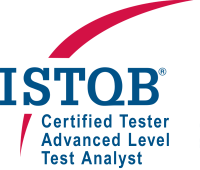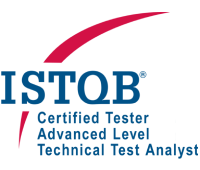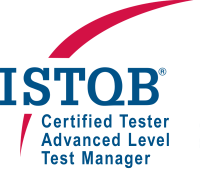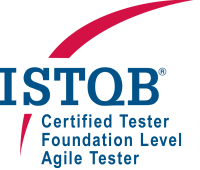Description

This hands-on course provides software testers, test engineers, and test managers with the essential ideas, processes, tools, and skills they need in order to set themselves on a path for true testing professionalism. There is no better online course to prepare for the ISTQB Foundation Level exam.
This e-learning course has been updated for the 2018 version of the syllabus! Purchase the course, and get started toward your ISTQB Certification today.
You may book e-learning training only for $599 or optionally add an electronic ISTQB certification exam for an additional $295.
E-learning Demo – View a sample of this course without obligation and for free.
 Rex Black, past President of the International Software Testing Qualifications Board (ISTQB), past President of the American Software Testing Qualifications Board (ASTQB), Project Manager and Technical Editor for ISTQB Foundation Syllabus 2018, Chair of the Agile Working Group, and co-author of over ten other ISTQB syllabi.
Rex Black, past President of the International Software Testing Qualifications Board (ISTQB), past President of the American Software Testing Qualifications Board (ASTQB), Project Manager and Technical Editor for ISTQB Foundation Syllabus 2018, Chair of the Agile Working Group, and co-author of over ten other ISTQB syllabi.
Three months of unlimited online access is provided with the course. Each section includes sample exam questions and exercises for main techniques.
- Fundamentals of testing
- Why is testing necessary
- What is testing
- General testing principles
- Fundamental test process
- Psychology of testing
- Code of ethics
- Testing throughout the software life cycle
- Software development models
- Test levels
- Test types
- Maintenance testing
- Static techniques
- Static techniques and the test process
- Review process
- Static analysis by tools
- Test Design Techniques
- Test development process
- Categories of test design techniques
- Specification-based or black-box techniques
- Structure-based or white-box techniques
- Experience-based techniques
- Choosing test techniques
- Test management
- Test organization
- Test planning and estimation
- Test progress monitoring and control
- Configuration management
- Risk and testing
- Incident management
- Tool support for testing
- Types of test tools
- Effective use of tools: potential benefits and risks
- Introducing a tool into an organization
This course was accredited by the ISTQB. This course follows the ISTQB Foundation Level Syllabus 2018. Blended e-learning, licenses, and volume discounts are also available for companies. Login instructions to be emailed.
- If you had purchased an exam, an exam voucher will be emailed to you with instructions on how to book the ISTQB certification exam in a separate email
- Remote-proctored exams – The ISTQB Certified Tester exams can be taken online at home via a remote-proctor
- The Foundation Level exam is comprised of 40 multiple-choice questions, with a pass mark grade of 65% to be completed within 60 minutes
To learn more about ISTQB® exams, consult the Exam FAQs. Take a look at the sample exams made available by ISTQB®. You can find them inside every syllabus folder in Download area.

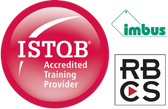
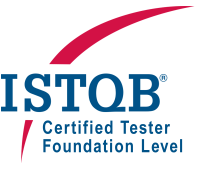
 Rex Black, past President of the International Software Testing Qualifications Board (ISTQB), past President of the American Software Testing Qualifications Board (ASTQB), Project Manager and Technical Editor for ISTQB Foundation Syllabus 2018, Chair of the Agile Working Group, and co-author of over ten other ISTQB syllabi.
Rex Black, past President of the International Software Testing Qualifications Board (ISTQB), past President of the American Software Testing Qualifications Board (ASTQB), Project Manager and Technical Editor for ISTQB Foundation Syllabus 2018, Chair of the Agile Working Group, and co-author of over ten other ISTQB syllabi.